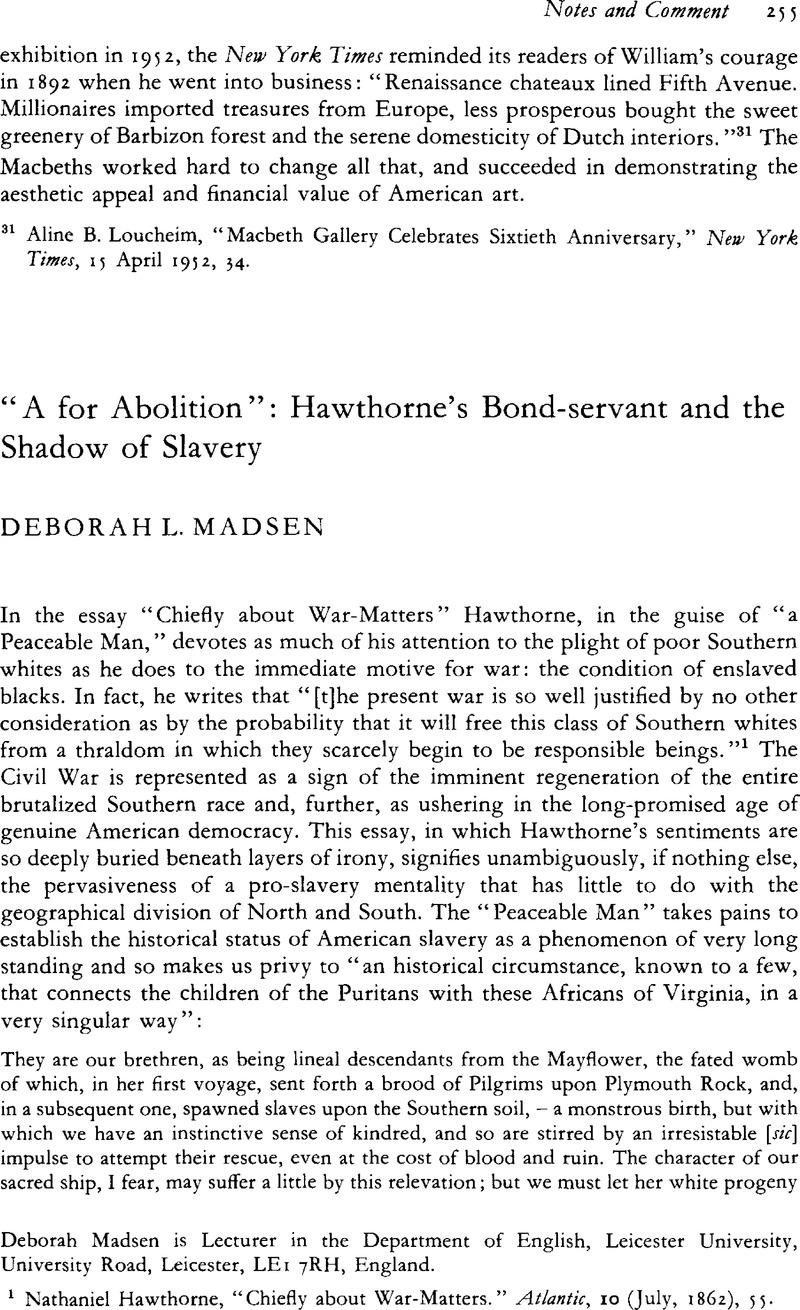Article contents
“A for Abolition”: Hawthorne's Bond-servant and the Shadow of Slavery
Published online by Cambridge University Press: 16 January 2009
Abstract

- Type
- Notes and Comment
- Information
- Copyright
- Copyright © Cambridge University Press 1991
References
1 Hawthorne, Nathaniel, “Chiefly about War-Matters.” Atlantic, 10 (07, 1862), 55.Google Scholar
2 Sundquist, Eric, “Slavery, Revolution, and the American Renaissance,” in The American Renaissance Reconsidered: Selected Papers of the English Institute, ed. Michaels, Walter Benn and Pease, Donald E. (Baltimore & London: The Johns Hopkins University Press, 1985).Google Scholar
3 Hawthorne, Nathaniel, The Scarlet Letter (1961, rpt., New York: W. W. Norton & Company, 1978), 77.Google Scholar
4 Bell, Michael Davitt, Hawthorne and the Historical Romance of New England (Princeton: Princeton University Press, 1971).Google Scholar
- 25
- Cited by


